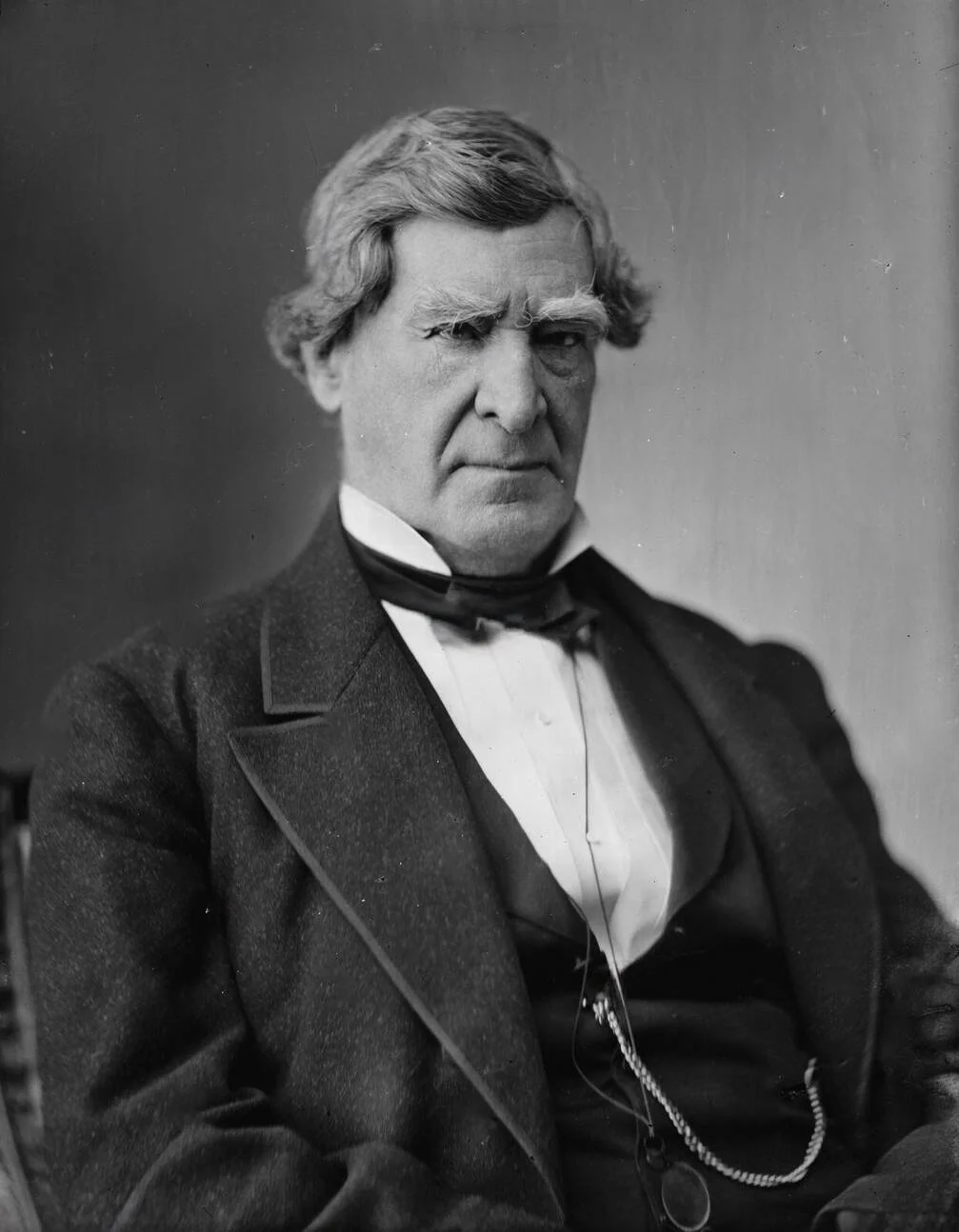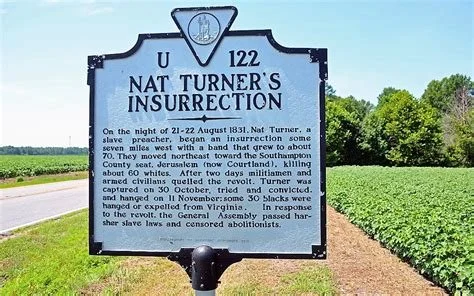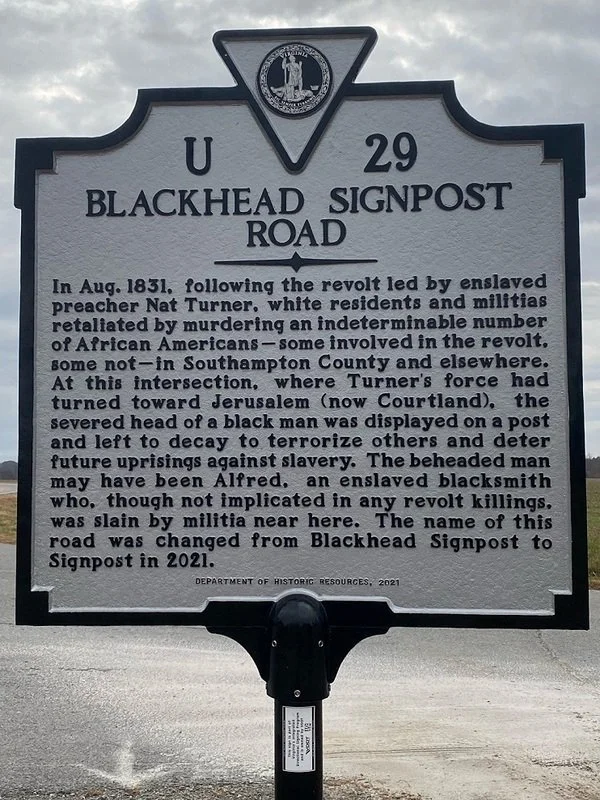Snowden
That men do not learn very much from the lessons of history is the most important of all the lessons of history.
Aldous Huxley
I've been told by a very good resource that this is Judge Jeremiah Cobb's home, "Snowden." In this era it was not unusual for homes to have names, in fact it was very common. Judge Cobb was the judge who presided at the trial of Nat Turner. Nat Turner lead a slave rebellion in Southampton County, Virginia in August 1831.
Slave revolts have always been “shocking” to those who owned slaves, whether it was Spartacus (73 BC) in Rome, the Zanj Rebellion (869) in the Middle East, the 1733 St. John Insurrection on the Danish island of St. John, Jamaica’s Baptist War (1831), or Gaspar Yanga’s Rebellion (1570) in Mexico. In America, which had recently - to those alive in 1831 - and successfully won their independence in 1776, slaves wanting freedom was, as it always is, a natural desire and dream. Such a dream was encouraged by what many historians refer to as “the most successful slave rebellion in history” in the French colony of Saint-Domingue (what we now know as Haiti) in 1791.
According to history.com, “One of the most famous slave revolts in American history came in 1831 when Nat Turner led a bloody uprising in Southampton County, Virginia. Turner was deeply religious, and planned his rebellion after he experienced prophetic visions ordering him to gain his freedom by force. On August 21, 1831, Turner and his accomplices killed his master’s family as they lay sleeping. From there, the small band of about 70 slaves moved from house to house, eventually killing over 50 whites with clubs, knives and muskets. It took a militia force to put down the rebellion, and Turner and 55 other slaves were captured and later executed by the state.
Hysteria swept through the region in the aftermath of Nat Turner’s revolt, and as many as 200 slaves were eventually killed by white mobs and militias. The rebellion also triggered a series of oppressive restrictions on slave populations. Citing Turner’s intelligence as a major factor in his revolt, several states would pass laws making it illegal to teach blacks to read or write.”
This woodcut shows how shocking Nat Turner’s Rebellion was seen in Southampton County in 1831.
"On November 5, 1831, when Judge Jeremiah Cobb, of Southampton County, Virginia, sentenced slave rebel Nat Turner to death by hanging, he ordered the Commonwealth to reimburse the estate of Turner’s slaughtered master. As confiscated chattel, Turner’s life was valued at $375. Six days later, the 30-year-old Turner was hanged and his body mutilated, but his powerful legacy transcended the punishments."
Victoria Dawson
SMITHSONIANMAG.COM
SEPTEMBER 13, 2016
Judge Jeremiah Cobb
When I was traveling in Southampton County, in 2020, I came across a road that had interesting names - Blackhead Signpost Road.
“Following Nat Turner’s revolt in August 1831, “white residents and militias retaliated by murdering an indeterminable number of African Americans,” according to the marker. At the intersection where the marker is located, the severed head of a Black man, who may have been an enslaved blacksmith named Alfred—who was not implicated in any revolt killings—was placed on a post “to terrorize others and deter future uprisings against slavery,” the marker states. In 2021, the name was changed to Signpost Road.”
I cannot help but contemplate how the Judge who sentenced Turner to his fate has a house still standing, but off a back road in an obscure plot of farmland, overlooked by the locals and history. Few people, except a handful of historians, would even know or recognize the name of While Nat Turner's name, almost 200 years later, the name of a man regarded as chattel, gains recognition and respect. Almost like Spartacus, the slave who revolted against Rome.







